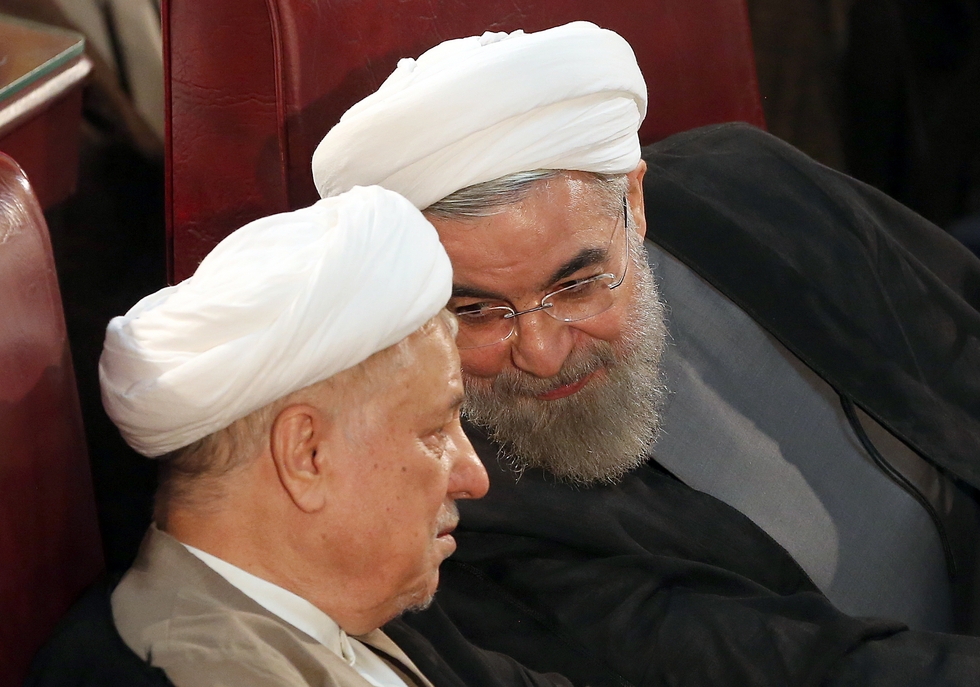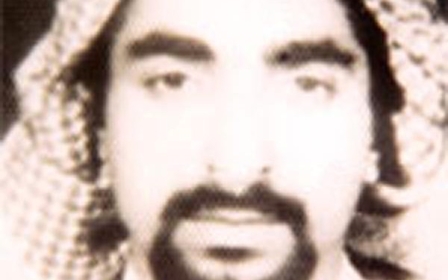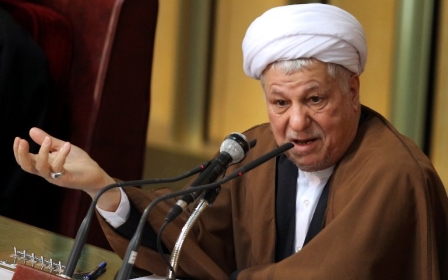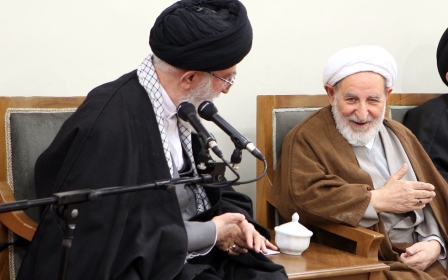The Khobar Towers bombing: Its perpetrators and political fallout

On 26 August, multiple news outlets reported that Ahmed al-Mughassil, the man described as the mastermind of the Khobar Towers bombing, had been arrested.
On 25 June, 1996, a massive truck bomb exploded at an eight-story US Air Force personnel dormitory in Khobar, Saudi Arabia. The blast killed 19 Americans and injured an additional 372, including several other nationals.
Washington accused Iran of the bombing shortly after. A 2001 indictment issued by an American court said the “Iranian government inspired, supported, and supervised” the terrorist act, but also mentioned that “this indictment does not name as defendants individual members of the Iranian government”.
Who was responsible for the bombing?
Osama Bin Laden had the strongest motive to carry out the Khobar attack. In November 1995, only months before the Khobar bombing, a car bomb exploded at the Office of the Programme Manager of the Saudi National Guard (OPM SANG) in Riyadh, where members of the Saudi National Guard were being trained by Americans. During an interview published in al Quds al Arabi on 29 November, 1996, Bin Laden was quoted as saying: “We had thought that the Riyadh and Khobar blasts were a sufficient signal to sensible US decision-makers to avert a real battle between the Islamic nation and US forces, but it seems that they did not understand the signal.”
Years later, in 2007, Reuters reported that former US Defence Secretary William Perry “says he now believes al-Qaeda rather than Iran” was behind the 1996 Khobar bombing. Perry added: “We probably should have been more concerned about it at the time than we were but in the first term we did not see Osama bin Laden and al-Qaeda as a major factor, or one that we were concerned with.”
The bombing occurred during the presidency of Ali Akbar Hashemi Rafsanjani. Rafsanjani’s primary foreign policy objective was to restore Iran’s relations with the US and repair the deeply troubled relationship with the Arab neighbours, mainly Saudi Arabia, due to the enormous financial assistance that the Saudis had provided for Saddam Hussein in his war against Iran (1980-1988).
During his eight years in office (1989-1997), Rafsanjani repeatedly attempted to reconcile US–Iran relations. For more than two years during George H.W. Bush’s tenure, he relentlessly tried to use Iran’s influence in Lebanon to free American hostages in that country. Rafsanjani succeeded, but his efforts brought no reciprocal American goodwill as was promised by President Bush.
During Bill Clinton’s presidency, Rafsanjani awarded a $1 billion contract – then the biggest oil contract in Iran’s history – to the American oil giant Conoco, despite a European company winning the bid. President Clinton ignored Rafsanjani’s gesture by imposing some of the toughest sanctions on Iran’s oil industry.
More interesting were the back-door negotiations between Iran and the US in which Germany’s then Chancellor Helmut Kohl, urged by the Rafsanjani administration, became involved. Kohl would eventually be turned down by the Clinton administration.
Regarding the revival of Iran’s relations with Saudi Arabia, Rafsanjani’s enormous behind-the-scenes efforts began in the spring of 1996. Just before the bombings, the framework of a comprehensive package, which encompassed a restoration of relations between the two nations in addition to regional cooperation, was finalised.
It was against this backdrop that the Khobar bombing occurred.
At that critical juncture it was absolutely nonsensical that the Iranian government would involve itself in such an act of terrorism and ruin the gigantic effort invested in its rapprochement with Saudi Arabia.
If al-Qaeda was not behind the 1996 bombings, the only other culprit could have been the rogue elements within Iran who had orchestrated the act to sabotage the reconciliation efforts by the Rafsanjani administration aimed at the normalisation of relations with the US.
Effects of the Khobar bombing
The Khobar bombings took US policies towards Iran hostage for several years thereafter.
In August 1999, Iran received a letter from Clinton to then Iranian reformist president Mohammad Khatami through the Oman government. The US President addressed Khatami in a very cordial tone, but claimed with certainty that the IRGC, along with the Saudis and Lebanese, “were directly involved in the planning and execution” of the Khobar bombings. Clinton was asking Khatami for “a clear commitment” to “ensure an end to Iranian involvement” in terrorist activities and to “bring those in Iran responsible for the bombing to justice either in Iran or by extraditing them to Saudi Arabia”.
This stirred significant negativity within Iran’s policy circles, including those of Khatami. They perceived Clinton’s letter, which was proposed as an olive branch, in almost the opposite light for which it was intended. Radicals argued that Clinton intended to deepen the differences between Khatami and the leadership, and sought to test Khatami’s will and capability to stand against the IRGC and the leadership by responding positively to Clinton’s letter.
Clinton’s timing could not have been worse. Tehran had just witnessed the most severe street protests in the 18 years since the Mujahedeen-al-Khalq (MEK) declared an armed struggle in 1981. Khatami’s primary objective at the time was to calm the domestic political environment down. He was not prepared to create a great deal of more tension between his camp and the hardliners by answering positively to Clinton’s letter.
Clinton’s letter placed the Iranian administration in a difficult position. Clinton should have put himself in Khatami’s shoes. What was Khatami expected to do, simply based on accusations by the US?
There were notable indications that, at that juncture, Clinton sincerely intended to find a way to open a dialogue with Iran while not ignoring the pressure from his Congress and the FBI’s assertion that Iran was responsible for the bombing.
Louis Freeh, then the FBI director, wrote a piece in June 2012 describing how Clinton’s administration was fighting with the FBI not to let Iran be accused of the terrorist act. Each of Freeh’s sentences demonstrate anger towards the White House for trying to save Iran.
Freeh wrote : “[The] White House … ordered us to stop the practice. Not a good idea, I told Madeleine Albright, who had succeeded Warren Christopher as secretary of state. ‘The Iranians are complaining,’ she responded. ‘Of course, they are,’ I told her. ‘That’s the point.’… By then, I was used to it.”
Describing the differences between the administration and the Congress, a 1999 piece published in the New York Times read, “Although it [the administration] would like to re-establish some relations with Iran, the administration faces strong anti-Iranian sentiment in Congress.”
Not surprisingly, Clinton’s letter was rejected in its entirety. It was greeted not with Khatami’s personal response, but the government instead.
“Such allegations are fabricated solely by those whose illegitimate objectives are jeopardised by stability and security in the region,” Iran’s letter read.
The event was one major reason for missing a unique opportunity, the coincidental presidency of Clinton who in his second term sought to open the doors on US-Iran relations, and Khatami who came to power with an agenda of easing tensions between the two states.
- Shahir Shahidsaless is a political analyst and freelance journalist writing primarily about Iranian domestic and foreign affairs. He is also the co-author of “Iran and the United States: An Insider’s View on the Failed Past and the Road to Peace,” published in May 2014.
The views expressed in this article belong to the author and do not necessarily reflect the editorial policy of Middle East Eye.
Photo: President Hassan Rouhani (R) and former president and head of the Expediency Council, Akbar Hashemi Rafsanjani (L), attend a session of Iran's Assembly of Experts in Tehran on September 1, 2015. (AFP)
New MEE newsletter: Jerusalem Dispatch
Sign up to get the latest insights and analysis on Israel-Palestine, alongside Turkey Unpacked and other MEE newsletters
Middle East Eye delivers independent and unrivalled coverage and analysis of the Middle East, North Africa and beyond. To learn more about republishing this content and the associated fees, please fill out this form. More about MEE can be found here.





